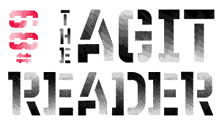
MVD Visual
When Richard Hell and the Voidoids’ released Blank Generation in 1977, the album seemed to encapsulate what was happening on the Bowery at the time. It put to words the alienation of the misfits who had made CBGB’s their home, while also capturing something of that particular era. Ulli Lommel’s film of the same name and starring Hell failed to make such an impact when it was released three years later—and for good reason. The paper-thin plot revolves around Hell’s character, Billy, and his topsy-turvy relationship with a French journalist, Nada (played by the beautiful Carole Bouquet), in New York to do a series of video interviews. But where Hell’s songs were poignant illustrations of the life of an artist on the Lower East Side, Lommel’s movie, in which Hell sort of plays himself and which features his songs and the Voidoids, is simply a bunch of loosely strung scenes filled with plenty of melodrama but little substance. There is little rhyme or reason to what goes on, and were it not for the quality of the filming, which captures the Lower East Side as it once was as well as great footage of the band playing at CBGB’s, it would be a complete disaster.
The irony, though, is that what makes this first domestic DVD release of Blank Generation worth seeing is Luc Sante’s recent interview with Hell on his opinion of the film and his experience working with Lommel. One of the worst (and thus funniest) scenes in the film is of Billy and Nada driving and trying to decide what to do. “New York City is a drag on Fridays,” Billy remarks. He suggests going to the beach, but then thinks they should go home, only to suggest the beach again and continue to flip-flop. Nada becomes infuriated in no time, and kicks Billy out of his car. Hell, in the interview, points to this scene as one which makes absolutely no sense. “That scene, how do you explain that?” Hell asks. “I think what was going on there was that was Ulli Lommel’s idea of how to convey what being ‘blank’ is. You can’t decide whether to drive to the ocean or not to drive to the ocean—you belong to the blank generation.”
Hell’s view of the movie is decidedly low, as is his opinion of Lommel and, to a lesser extent, Bouquet. “I was really searching,” he continues. “And there’s actually not a single authentic, truthful moment in that whole movie—not one.” And he’s right. None of the characters are given any room (or, by Hell’s description, guidance) to develop, and even as the film progresses, each scenario seems isolated from the one before it. The film has the feel of an art-project gone bad. At one point in his interview with Hell, Sante actually proposes that perhaps this was the result of doing too much cocaine.
Even in trying to pinpoint Blank Generation’s redeeming qualities (that it captured his band at its peak), Hell visibly cringes at his association with the project. “I get embarrassed,” he says. “I get ashamed watching it because it makes me feel like my whole self-respect is compromised—it really does.” He goes on to succinctly summarize the movie as “atrocious and profoundly worthless.” As harsh as that may seem, there really is no other way to describe it.
Stephen Slaybaugh
The TAMI Show
The Soundtrack of Our Lives Live Review
Walking on the Moon: The Untold Story of the Police and the Rise of New Wave Rock
Bowie: A Biography
Soul Power
Prefuse 73 Live Review
Best Music Writing 2009
Sid! By Those Who Really Knew Him
Bomp! 2: Born in the Garage
When Giants Walked the Earth: A Biography of Led Zeppelin
The Devil Went Home and Puked: Robert Pollard's Rock Show
Skinny Puppy and Surfer Blood Live Reviews
Light: On the South Side
Eccentric Soul Revue Live Review
